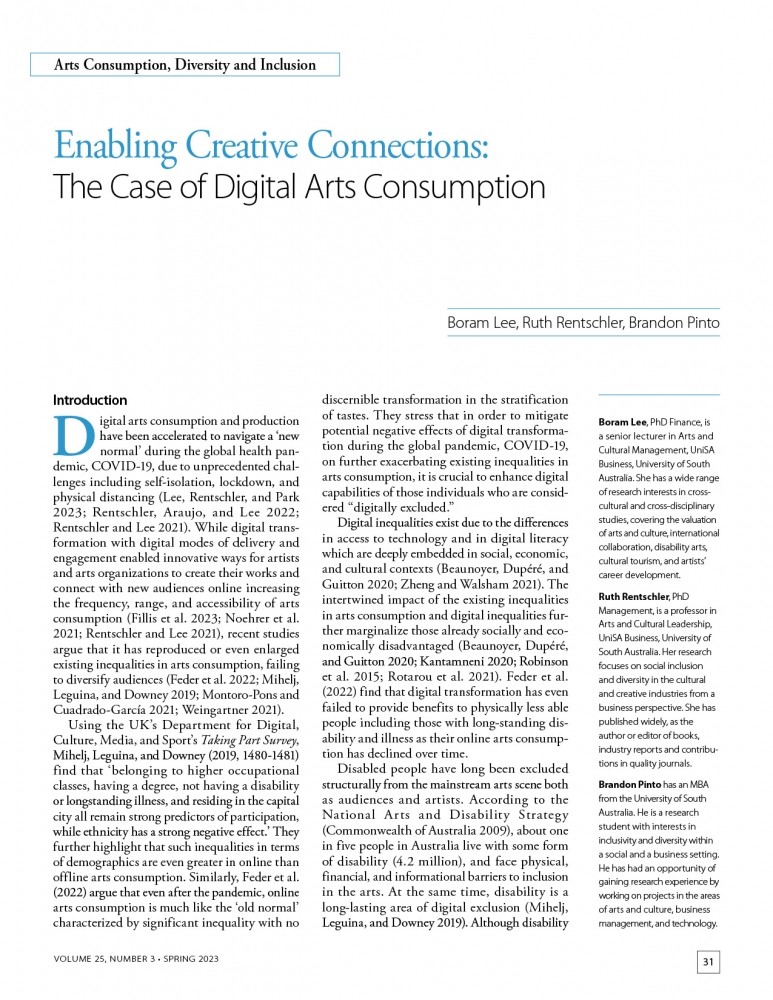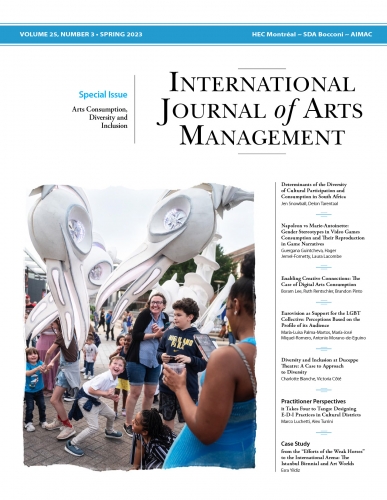Enabling Creative Connections: The Case of Digital Arts Consumption
Product: Article
$21.00 CA
Boram Lee, Ruth Rentschler, Brandon Pinto
Boram Lee, PhD Finance, is a senior lecturer in Arts and Cultural Management, UniSA Business, University of South Australia. She has a wide range of research interests in crosscultural and cross-disciplinary studies, covering the valuation of arts and culture, international collaboration, disability arts, cultural tourism, and artists’career development.
Ruth Rentschler, PhD Management, is a professor in Arts and Cultural Leadership, UniSA Business, University of South Australia. Her research focuses on social inclusion and diversity in the cultural and Creative industries from a business perspective. She has published widely, as the author or editor of books, industry reports and contributions in quality journals.
Brandon Pinto has an MBA from the University of South Australia. He is a research student with interests in inclusivity and diversity within a social and a business setting. He has had an opportunity of gaining research experience by working on projects in the areas of arts and culture, business management, and technology.
ABSTRACT
In this paper, we investigate how digital inclusion of disabled people can be promoted in order to facilitate their online arts consumption during COVID‑19 when the digital transformation of arts consumption was inevitable. While barriers towards disabled people for arts consumption have been studied widely, their digital inclusion has been overlooked. We explore drivers and prerequisites towards digital inclusion of disabled people based on a case study of an international online theatre-making collaboration involving 17 disabled artists, carers, and staff between two disability arts organizations in Australia and Singapore. Our digital inclusion framework includes three key drivers, i.e., enabling digital access, creating a safe online space, and building digital literacy and highlights the importance of preconditions providing for people of all abilities, technical and communication support. We suggest five digital inclusion strategies for disability arts organizations to align their inclusive practices to enable and sustain online arts consumption of disabled people.
KEYWORDS
Digital Inclusion; Disabled People; Theatre-making; Digital Divide; COVID‑19

